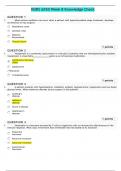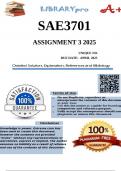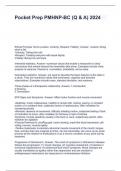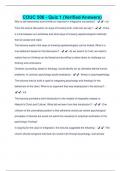College aantekeningen
Unit 4 - Land Law - Engage/Prep Taks - Solved
- Vak
- Instelling
I scored a 90 on my SBAQs so I had a pretty strong grasp of the concepts on Land Law. About this doc: Considering what creates joint tenancy and how TLATA applies. Key words in the answer: Four unities Goodman v Gallant Severance Effect of bankruptcy Effect of death Powers/Duties/Restri...
[Meer zien]












